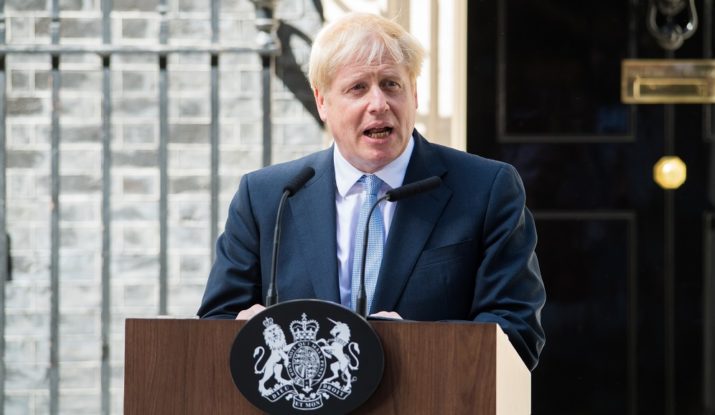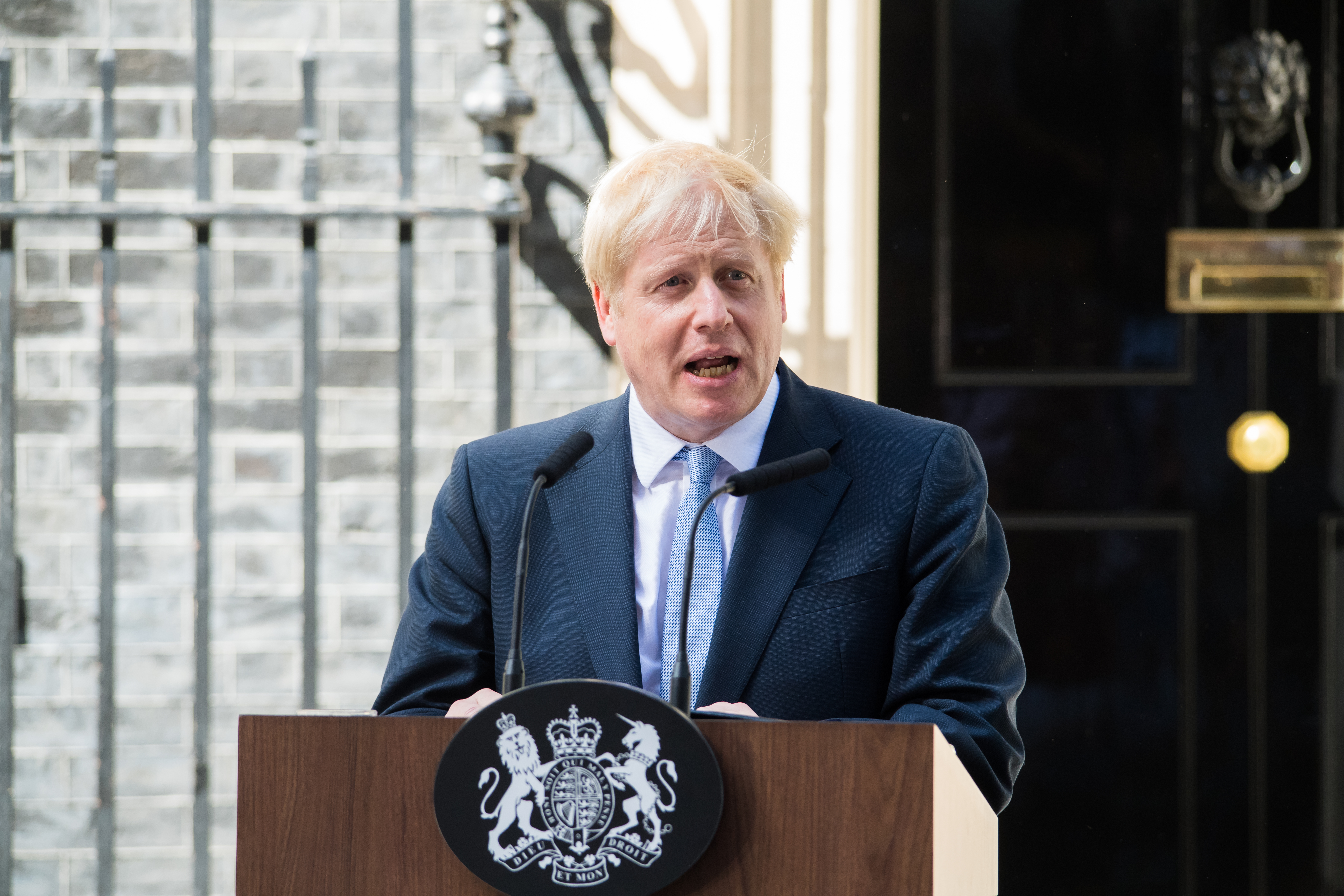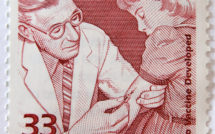

Boris Johnson’s election as leader of the Conservative Party and Prime Minister of the United Kingdom on July 23, 2019, may result in a damaging, hard,[1] disorganized Brexit on Halloween, October 31. But the economic reality of a hard Brexit could be obscured by fairytales about the glorious future awaiting Britannia when she is freed from the shackles of the European Union, and able once again to sail the seas and chart her own economic and trade course. Mr. Johnson has been congratulated by President Trump—a man that Mr. Johnson has arguably emulated in his style and approach—and the two leaders have three more meetings scheduled before October 31. Three years on from the June 23rd referendum, Britain has its very own old Etonian aristocratic Trump in office. A rich populist. A man untethered from existing norms of appropriate political behavior and personal conduct. Mr. Johnson believes he was born to lead, but he appears unfamiliar with the importance of truth, and he is a leader who is happy to fan the flames of distrust between “them” and “us” regardless of the consequences for public order and social cohesion. Despite—or perhaps because of—these personal and political traits, Mr. Johnson was backed by many new Conservative Party members, angry at the establishment within their own party, just as activists on the left in the Labour Party backed Jeremy Corbyn almost four years ago.
Populism and Extremes
As in America, populism driven by extremists is testing British politics and driving traditional parties close to destruction. On the left, the Labour Party’s membership surged by 198,000 to 552,000 after Mr. Corbyn joined the race for leader in 2015.[2] Many of those new members are much further to the left than existing members, are more radicalized, and are anti-capitalist. On the right, a surge of new members in 2019 has increased the size of the Conservative Party by 30 percent, and many new members are Brexiteers. The effect of this increase and shift in membership composition of both parties has been to push them to extremes—toward a utopian socialism fantasy on the left, and toward a take-the-country-back, hard-Brexit-no matter-what, vision on the right. The new (mostly male, southern English, and middle aged[3]) Conservative Party members appear willing to smash the UK and their own party to ensure Brexit. A June 18 poll[4] underscored this. Those surveyed indicated they would prefer Brexit even if:
- It causes Scotland to leave the United Kingdom (63 percent);
- It causes significant damage to the UK economy (61 percent);
- It causes Northern Ireland to leave the United Kingdom (59 percent);
- It leads to the destruction of the Conservative Party (54 percent).
With political activists like these, Britain is in deep trouble. This is what the Prime Minister faces: A party whose members no longer are conservative in the traditional UK sense of being resistant to radical sudden repudiation of existing longstanding political and institutional norms, but who are instead willingly and actively destroying the UK’s political contract of union.
Crisis? What Crisis?
Brexit’s latest Halloween deadline should mean a constant, round-the-clock search for a way to bridge the gap between Brexiteers’ demands and a largely unchanged Withdrawal Agreement, which the EU continues to stand by. But no. The House of Commons goes into recess and summer vacation beckons, and the annual party conferences loom, eating up still more time. As of July 31, there are only thirty-eight working days left to negotiate a Brexit deal by Halloween. Given the process thus far, and the complexity of what must be accomplished, the probability of a managed exit being achieved by that date is vanishingly small. This should narrow focus onto a minimal number of desired adjustments to the political declaration that accompanies an exiting deal that former Prime Minister Teresa May negotiated, but which she could not get passed in the House of Commons. The European side has already indicated they will consider some changes to the political declaration, but not to the payments and Irish backstop.[5] Will such a construct be enough for the new Prime Minister and his most ardent Brexiteers? I doubt it. This “old deal as a new deal” scenario requires the Prime Minister to abandon myths and face facts. Unfortunately, the Prime Minister still seems to believe fairytales about the country’s future. The Prime Minister’s first speech to the House of Commons signaled as much: “Our mission is to deliver Brexit on the 31st of October for the purpose of uniting and re-energising our great United Kingdom and making this country the greatest place on earth.” In fact, Britain has a weak negotiating hand, a very tight timeline, and she faces a united and strong EU. To make a deal, the Prime Minister must base his stance on this reality, not on delusions.
WTO Article 24 – A Vanishing Unicorn
Brexiteers, including the Prime Minister, repeatedly reference an alleged Monopoly-esque “get-out-of-Brexit-free” route via World Trade Organization (WTO) rules, specifically Article 24 of the General Agreement on Tariffs and Trade (GATT). This article addresses how the WTO deals with customs unions and free trade agreements.[6] Johnson et al. maintain they can continue trading with the EU on current terms based on this provision of the GATT.[7] But they are wrong. Article 24 is not an easy-out from Brexit disaster. It is not applicable in the case of the Brexit talks. Rather, Article 24 provides an exception from Most Favored Nation requirements for customs unions or free-trade agreements, and interim agreements leading to such deals, based on the underlying understanding that such deals lower barriers among participating states. In this case, Britain is withdrawing from a deep and comprehensive trading accord with the EU, destructively or otherwise. Britain does not have a trade deal ready for WTO review. Quite the contrary. So, the Article 24 debate is a red herring, designed to suggest to the public that a technical easy solution exists. It does not. During the leadership campaign, Mr. Johnson was publicly embarrassed after referring repeatedly to “Article 24 sub-paragraph 5b” adding sonorously “get the detail right,” only to be asked by Andrew Neil, the interviewer, “How would you handle paragraph 5c?” Mr. Johnson waffled. He is again asked, “Do you know what is in 5c?”[8] To which Mr. Johnson responded sheepishly “No.”[9]
Side Deals that are Not Side Deals
The Prime Minister has also repeatedly claimed that “side deals” with the EU could ensure no severe disruption in the event of a hard Brexit. This is untrue according to EU officials.[10] It is true that as a contingency matter, the EU is laying the ground for a hard Brexit, i.e., temporary procedures to help ensure airlines can continue to fly, Calais remains operating, medicines continue to trade, and so on. These unilateral emergency positions are temporary, not the subject of talks. They are not side deals. They are the EU equivalent of the Brexit contingency planning that has been underway in Britain. If the Prime Minister is to manage Brexit in a way that does not do serious harm to his new administration two months from now, he must abandon fairytales and face reality.
When Will Reality Bite?
Reality should bite. Officials will still speak truth to power. But it is an open question whether Mr. Johnson will be willing (or able) to listen to those voices of reason. First, he has been elected by members who want Brexit no matter the pain, so a compromise withdrawal deal that looks much like the existing one will be a hard sell. Second, the new Prime Minister is a man of bluster and is very poorly prepared to clash with the EU’s highly effective chief negotiator Michel Barnier. Third, it requires the Prime Minister to admit to and to articulate some hard truths to English conservative voters who are in the grip of emotion and myths rather than grubby reality. Britain is weak not strong. There are no easy options. Only a series of increasingly bad ones. The facts demonstrate this. The UK Foreign Office’s economic projections indicate all options other than EU membership are damaging to the country’s economy. But this has not been publicly admitted; truth has become a casualty to political narrative. This is the key issue—whether the UK position on Brexit will be determined based on facts as it should be. Freedom erodes when hard truths and facts are denied. Or as George Orwell stated in an unpublished preface to Animal Farm: “If liberty means anything at all it means the right to tell people what they do not want to hear.”[11] Will the new Prime Minister lead? Will his supporters listen if he stands up and acts like his hero Winston Churchill? I believe the answer will be “no” on both counts. In that case, what does Britain face after October 31?
A Post Brexit Recession Certainty
A hard Brexit will reanimate terrifying economic ghouls. Business confidence, already battered, will slump. Foreign direct investment will further slip as companies and investors direct cash toward safer shores. Major firms (financial and manufacturing) will continue the process of reallocating resources and employment away from Britain and into Europe. The City of London will slowly shrink in size, as the joys of Paris, Dublin, and (perhaps less so) Frankfurt beckon. Crucially, UK house prices—already falling in London and the South East—will continue to slip as foreigners put their property bets elsewhere, and UK homebuyers hold off from purchasing in these uncertain times. And, as House of Debt(Atif and Mann, 2015) demonstrates conclusively,[12] when house prices fall, the effects wipeout housing equity, and the marginal propensity to consume plummets. When this happens, recession will become a practical certainty.[13] Government tax revenues will fall. More austerity will be inevitable, squeezing the economy further, exacerbating the downward spiral. In this manner, the promises of Brexit will crash against the economics of exit. A population promised the fairytale of a bright new future as Global Britain will confront an upsetting shrunken poorer economic reality. A country that used to be a business gateway to Europe will become a gateway to nowhere.
The Fracturing of the United Kingdom
And what of the political stability of the UK? Any form of hard or disorganized Brexit will hasten the end of the UK as Scotland and Northern Ireland both voted heavily to remain. Scotland’s First Minister Nicola Sturgeon has promised a second independence referendum, and Johnson’s victory has accelerated those plans.[14] Ms. Sturgeon has a mandate to make the demand. Crucially, a hard Brexit may herald a shift in Scottish voters’ views (including, I confess, my own). After all, a principal reason many voted to remain in the UK in 2015 was to maintain Scotland’s strength in Europe as part of the UK. With Brexit Britain, that is finished. Scots, whose political views and policy positions have moved further and further away from those of their English cousins, will likely decide Johnson’s Britain is really a little England, and no longer part of their future.
What of Northern Ireland if the backstop is jeopardized and Brexit proceeds regardless? The Prime Minister, in typical inflammatory form, has previously called the backstop a “monstrosity,” and wants Northern Ireland’s position to be determined later, once a trade deal has been fashioned.[15] At present, it is unclear how the new UK government can replace the backstop, which is a necessity for the EU and an anathema to the Democratic Unionists and Brexiteers. What is clear is that a hard Brexit would seriously undermine the devolved political system and cohesion in Britain at a time when voters are becoming increasingly tribal and nationalist.
Can Johnson’s Trumpian “Flexibility” Save the Day?
What will Prime Minister Johnson do in the weeks ahead? Can he face facts? Can he negotiate a reasonable deal and exit without economic and political calamity for Britain and the British? We shall have to wait and watch. But there is one possible way out: The Prime Minister could face the facts, use his bully pulpit to warn of difficulties, but herald opportunities; he could also clothe the facts in emotional narrative myth. After all Boris Johnson started his career being flexile with the facts and has continued in the years since then. He was fired by his boss Max Hastings, then editor of The Daily Telegraph, who opined:“Johnson would not recognise truth, whether about his private or political life, if confronted by it in an identity parade.”[16] Mr. Johnson was also fired by his subsequent boss, Michael Howard, when he lied about an extra marital affair.[17] There are numerous other instances of the Prime Minister’s laxity and indifference to the truth.
As October 31 approaches, and if reality bites, can the Prime Minister spin what is sure to be a difficult and unpalatable deal into a victory? Can hard truths transform into a new glorious dawn for the country? Can a Brexit deal that avoids disaster morph into a return of English parliamentary sovereign power? President Trump does this daily. Backing down after a government shutdown. Claiming no obstruction when the Mueller report lists ten instances of probable obstruction. Signing deals with North Korea that are worthless. Perhaps the best use of the Prime Minister’s many meetings with Trump would be to learn from the President how to declare victory when you have lost, or gained very little. To survive and succeed, Mr. Johnson must face facts and create new myths.
Stuart P. M. Mackintosh is Executive Director of the Group of Thirty, an international financial think tank composed of the world’s leading current and former central bankers, financial leaders and academics. The views expressed above do not reflect the views of the Group of Thirty or of its members.
References
[1]A ‘hard’ Brexit means the UK leaves the European Union without a Withdrawal Agreement in place and no interim process bridging between the exit and a new trade deal. It is considered by economists to be the most damaging form of exit from the European Union.
[2]Whiteley, P., Polletti, M., Webb, P.,Bale,T. (2019). Oh Jeremy Corbyn! Why did Labour Party membership soar after the 2015 general election? The British Journal Politics and International Relations. Vol 21(1) pp 80-98
[3]Male. Southern and middle aged: meet the Tories choosing the next PM. The Guardian, June 12, 2019. Online: https://www.theguardian.com/politics/2019/jun/21/more-than-half-of-tory-members-would-ruin-party-over-brexit
[4]Most Conservative members would see party destroyed to achieve Brexit. YouGov, June 18, 2019. Online: https://yougov.co.uk/topics/politics/articles-reports/2019/06/18/most-conservative-members-would-see-party-destroye
[5]‘Unacceptable’: EU dismisses Bros Johnson’s Brexit plan hours after he unveils it to MPs. The Independent. July 26, 2019. Online: https://www.independent.co.uk/news/uk/politics/boris-johnson-brexit-eu-plan-deal-negotiation-irish-backstop-prime-minister-a9020866.html. Under the ‘Irish Backstop’ the UK and EU agreed that whatever happens as a result of Brexit there should be no new physical checks or infrastructure at the frontier. To ensure this if there was no trade agreement between the UK and EU after a specified transition period goods coming into Northern Ireland from the UK would be checked to see they meet EU standards. This is unacceptable to Irish protestant leaders in the Democratic Unionist Party and others as it could essentially keep the UK inside the customs union with the EU until a trade deal is struck.
[6]General Agreement on Tariffs and Trade, Article 24. Territorial Application – Frontier Traffic – Customs Unions and Free Trade Areas. World Trade Organization. Online: https://www.wto.org/english/tratop_e/region_e/region_art24_e.htm
[8]Article 24 sub paragraph 5b requires that such deals lower tariffs amongst participating states below that already applied via GATT and the WTO rules. So long as a customs union continues to foster even freer trade it would be permitted by GATT. Article 24 sub-paragraph 5c requires that such interim deals be completed within a reasonable length of time. This article is not relevant in the case of Brexit.
[9]Full Transcript: Boris Johnson grilled by Andrew Neil. The Spectator. July 12, 2019. Online: https://blogs.spectator.co.uk/2019/07/full-transcript-boris-johnson-grilled-by-andrew-neil/
[10]Boris Johnson’s claims of ‘side deals’ are ‘pure rubbish’, EU says. The Guardian, July 24, 2019. Online: https://www.theguardian.com/politics/2019/jul/24/boris-johnson-claims-of-side-deals-are-rubbish-eu-says
[11]Crick, B. (1972). The Freedom the Press – Orwell’s proposed preface to Animal Farm. Times Literary Supplement, September 15. The preface was discovered by Crick as he worked on his magisterial biography of Orwell. Online:https://www.marxists.org/archive/orwell/1945/preface.htm
[12]Mann, A. Sufi, A. (2015). House of Debt. University of Chicago.
[13]No-deal Brexit could cause £30bn economic hit, watchdog says. BBC News. July 18, 2019. Online: https://www.bbc.com/news/business-49027889
[14]First Minister to consider speedier plans to Indyref2. The National. July 24, 2019. Online: https://www.thenational.scot/news/17789902.fm-consider-speedier-plans-indy-vote/
[15]Boris Johnson: Irish Border problem a ‘gnat’ and backstop a ‘monstrosity’. The Irish Times, September 16, 2018. Online: https://www.irishtimes.com/news/politics/boris-johnson-irish-border-problem-a-gnat-and-backstop-a-monstrosity-1.3631286
[16]Hastings, Max (2019) I was Boris Johnson’s boss: he is utterly unfit to be Prime Minister. June 24. The Guardian. Online: https://www.theguardian.com/commentisfree/2019/jun/24/boris-johnson-prime-minister-tory-party-britain
[17]Howard sacks ‘devasted’ Boris Johnson over affair. The Daily Telegraph, November 14, 2004. Online: https://www.telegraph.co.uk/news/uknews/1476560/Howard-sacks-devastated-Boris-Johnson-over-affair.html
Photo: London UK. 24th July 2019. Boris Johnson, delivers a speech outside 10 Downing Street. Prime Minister Boris Johnson, promise to take Britain out of the European Union by 31st October | Shutterstock
Published on July 31, 2019.




